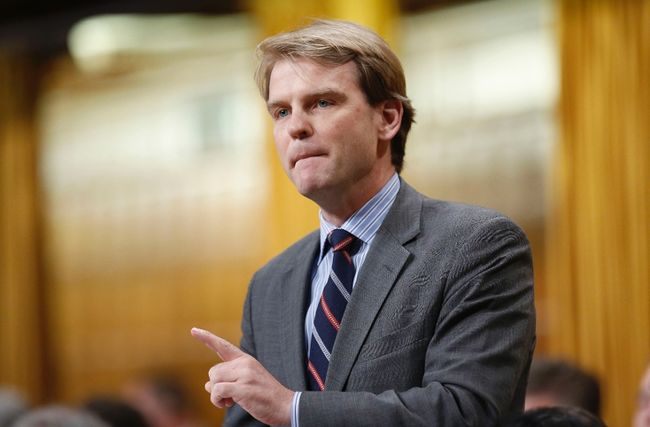On January 30, 2015, the Harper government introduced a new security bill in response to the Parliament Hill shooting which left Cpl. Nathan Cirillo dead and sent shock waves throughout the country. A few days prior, two other Canadian soldiers were hit by a car and pronounced dead in St. Jean-sur-Richelieu, QC, south of Montreal. Both attacks were considered to be acts of terror carried out by radicalized individuals. The attacks sparked a national debate on homegrown extremists and radicalized jihadists which, in turn, ignited discussion regarding the tension between security and privacy
The government’s anti-terror legislation, Bill C-51, expands the powers of Canadian Security and Intelligence Services (CSIS). With these powers, CSIS is expected to disrupt emerging terror threats at home and abroad. In a speech in Ottawa, Prime Minister Harper stated that “these measures are designed to help authorities stop planned attacks, get threats off our streets, criminalize the promotion of terrorism, and prevent terrorists from travelling and recruiting others.” The government believes that there are some benefits for this legislative proposal in combating and preventing terror attacks on Canadian soil. Bill C-51 provides law officials with preventative measures such as stricter protocols on no-fly lists, coordinated information sharing, concealed court proceedings and longer detention periods for suspected terrorists in an effort to keep Canadians safe.
This Anti-terror legislation seems similar to the response of the Bush Regime to the 9/11 terrorist attacks. The attacks on the World Trade Center and Pentagon, in which over 2000 civilians were killed, caught the attention of people all over the world. Security and law officials were caught off-guard and the way societies around the world view security changed permanently. To thwart future attacks and security breaches; the United States enacted the Patriot Act, which has increased surveillance capabilities and prompted many civilians to demand measures that ensure privacy regarding their online activity. Edward Snowden, a former American National Security Agency (NSA) contractor who is now wanted for treason, leaked classified NSA documents that revealed massive surveillance programs, wiretappings and sharing of personal data to third party entities. These programs are deemed by many to infringe upon citizens’ privacy and constitutional rights.
In a recent interview with journalist Glenn Greenwald, Edward Snowden cautions Canadians about the proposed legislation, as it is almost a replica of the security measures adopted by the Bush regime in the USA. Snowden notes that CSIS’ expanded powers will lead to mass surveillance programs and that the collection of such an abundance of data is counterproductive since it does not produce the intended results. Rather, such security protocols change the balance of power between citizens and the state; violating fundamental liberties of Canadian citizens instead of pinpointing potential terrorist activities.
Legal experts have claimed that the highlight of this bill, which criminalizes the promotion of terrorism, may violate fundamental freedoms in the wake of national security concerns. The promotion of terrorism includes distribution of any materials that encourage or endorse acts of terrorism against Canadians. Some scholars have coined this as the terrorism glorification offence. Law professors Craig Forcese and Kent Roach mention that “on several occasions since 2007, government politicians have expressed interest in a terrorism glorification offence…we conclude that [this] would be ill-suited to Canada’s social and legal environment.” Such legislation could face legal upheaval in the courts due to its infringement on section two of the Canadian Charter of Rights, which guarantees freedom of expression.
Other Constitutional lawyers have criticized the new anti-terror bill. As of 2013, the enactment of the Combating Terrorism Act has expanded on existing law enforcement powers. Since the adoption of this act, the expanded legislation has been rarely utilized for preventive measures. These measures include provisions for gathering data on suspected terrorists and amendments on the criminal code for leaving Canada with the purpose of engaging in terrorist activities. Additionally, the act authorizes the federal court to withhold publicizing sensitive information during court proceedings. The fact that these expanded powers have been sporadically used demonstrates that there are sufficient protocols already in place to effectively prevent future terror attacks.
Ahead of this year’s fall elections, New Democratic Party Leader Thomas Mulcair is opposing the new anti-terror bill, pronouncing it flawed and citing the need to protect civil liberties with regards to online privacy concerns. Justin Trudeau, Liberal Party Leader, supports the new anti-terror bill; albeit, he believes more parliamentary oversight and legislative reviews would be required. Trudeau states “I believe that when a government asks its citizens to give up even a small portion of their liberty it is that government’s highest responsibility to guarantee that its new powers will not be abused.’’
Preventing terror attacks and domestic radicalization are very important issues in any sovereign nation. It is essential for law enforcement officials to have effective preventative measures and protocols that will thwart terrorist activities. However, it is also necessary to have a balance between civil liberties and security, so as to respect fundamental values and laws that Canadians cherish.




